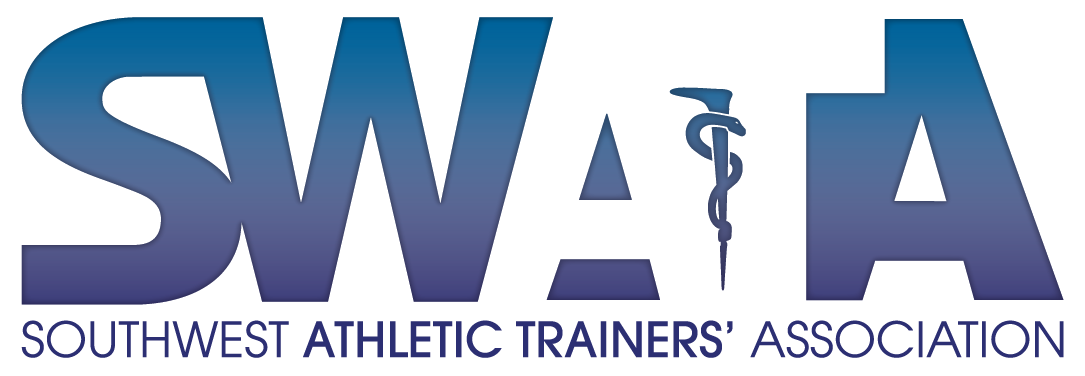Professional Schedule
CLICK FOR TENTATIVE SCHEDULE
65th SWATA Annual Symposium Schedule
SWATA 2019 will offer a variety of topics throughout a one day preconference and the 2.5 day meeting allowing attendees to tailor their continuing education to their needs. Attendees are encouraged to attend those lectures that best match their clinical settings and continuing education goals. CEU certificates are awarded after completion of post-conference surveys administered by EventRebels.
Learning Objectives
1. Summarize the physiological difference between chronic and acute inflammation as it relates to exercise, and how anti-inflammatory compounds combat inflammation and an athlete’s nutrition needs according to the stage of injury recovery
2. Gain an understanding of the most contemporary sport-related concussion sideline assessment tools and learn about the labyrinth of information surrounding concussions and recovery.
3. Describe the current state and future directions of transition to practice in athletic training within the patient-centered care team and in line with best practices.
4. Apply critical treatment for bleeding and describe the effects of traumatic events and critical incidents on athletic trainers and other caregivers.
5. Understand the theories behind several non-traditional treatments including tissue flossing band treatments, blood flow restriction training, and “hot” and “cold” laser treatments.
6. Understand and identify basic anatomical structures of the vestibular apparatus and their function within balance and hearing and allow for effective balance training and vestibular recovery.
7. Participants will understand the evidence supporting best practices in sports science to limit injury risk, improve performance and promote recovery.
8. Help athletic trainers establish themselves on social media and the need for value data including the importance of building relationships with patients and stakeholders through effective communication methods.
9. Understand the importance of good sleep hygiene and nutrition and the role it plays in injury prevention and recovery.
10. Understand deficits associated with knee loading impairments in functional tasks such as gait and squatting in the early phases of rehabilitation following ACL-R and describe deficits present at time of return to sport from ACL reconstruction.
11. Learn the common psychological struggles of permanently-sidelined athletes coping with the transition out of competition, including the Stages of Grief and Transition and identify the difference in risk appraisal, fear of re-injury, and self-efficacy.
12. Understand what is early sports specialization and why it is a medical problem and how youth sports are effecting professional sports.
13. Differentiate certificates of attendance/participation/completion from board-certified specialty programs.
14. Understand the etiology and treatment of pediatric amplified musculoskeletal pain syndrome and learn what recovery means and how it effects performance in various realms.
15. Demonstrate a working knowledge of the following terms as it relates to the athletic training profession globally and the physician practice setting specifically: worth, value, revenue, reimbursement.
16. Implement strategies to encourage critical thinking skills during clinical education.
